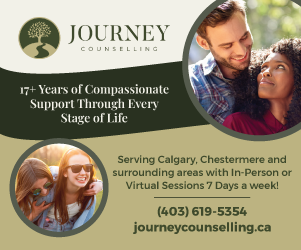Alberta is in the midst of a measles outbreak — and you would hardly know it. Unlike during the COVID-19 pandemic, our provincial leaders are keeping quiet. We are not receiving regular updates from the Chief Medical Officer of Health, nor has the premier publicly endorsed the most effective way to stop this outbreak: vaccination.
Alberta has the highest per capita rate of measles in North America with 1857 cases confirmed as of September 6, 2025 and many more unreported. Our province has more cases of measles than reported in the entire United States, a statistic of which no Albertan should be proud.
Measles is a highly contagious disease with serious complications such as pneumonia, brain inflammation and even death. Pregnant women, young children and those who are immunocompromised are most at risk. The measles vaccine is safe and extremely effective, with one dose of the vaccine providing 90% protection and two doses almost 100%.
But we have grown complacent about measles. In 1998, the disease was considered eliminated from Canada due to the spectacular success of immunization. Vaccines provide direct protection to those who are vaccinated and indirect protection to those too sick or young to receive the vaccine. But now the rate of vaccination in Alberta has plummeted to 72%, far below the 95% needed for herd immunity.
Disruptions to childhood immunization programs during the pandemic have contributed to the low measles immunization rates we are seeing today. But there is another important factor lurking in the shadows: post-pandemic politics.
The political fallout from pandemic measures left scars within the United Conservative Party. Jason Kenney was forced to step down after plummeting approval from his own base, in part because of anger over COVID-19 restrictions. His successor, Danielle Smith, drew her lesson quickly: avoid strong public health measures, however necessary, if they risk alienating supporters. Within weeks of taking office, she fired Dr. Deena Hinshaw, the public health official who had competently led Alberta through the COVID-19 pandemic.
The pattern has repeated itself. When measles cases first surfaced this spring, Alberta’s then Chief Medical Officer of Health, Dr. Mark Joffe, was silent in the public realm. One can only suspect that he was prevented from mounting a robust public health response that would have decisively ended the outbreak.
Meanwhile, the people paying the highest price are rural Albertans. The South, North, and Central health zones have the highest measles rates, while Calgary and Edmonton are less affected. Ironically, it is the very communities most vital to the UCP’s political success that are suffering most from its lack of action.
In Alberta, as in the United States, public health is under attack by politicians and their organizers looking to create division and win votes. Healthcare professionals enjoy high levels of trust, while politicians find themselves at the other end of the spectrum. Whether it is firing the Chief Medical Officer of Health or dismantling the leadership of the Centre for Disease Control, the political strategy is the same: sow mistrust in public health officials and reduce their ability to influence and improve people’s health.
During the COVID-19 pandemic, medical leaders had authority under provincial health acts to order school closures, restrict gatherings, and impose measures to save lives. When those measures became unpopular, Alberta’s government clawed back that power. Kenney’s government did so by violating the Public Health Act. Smith went further: Bill 6, the Public Health Amendment Act, 2023 explicitly handed final decision-making during health emergencies to cabinet, sidelining the Chief Medical Officer of Health entirely.
What Alberta needs instead is political courage. Leaders should be restoring trust in public health officials, not undermining them. They should be guiding Albertans toward proven measures that protect lives. In an era when health decisions are increasingly shaped by political identity and social affiliation, the responsibility of leaders — political, religious, and community — is to steer people toward choices that safeguard their health and the well-being of those around them.
It can be done. Premier Doug Ford in Ontario, no one’s idea of a radical progressive, has publicly endorsed vaccination as the way to end the measles outbreak. Conservatism and public health are not inherently at odds. Protecting people from preventable disease should be common ground for all parties.
Yet Alberta’s government is moving in the opposite direction. This year, COVID-19 vaccinations will not be covered for most Albertans. Reminiscent of the disastrous “Best Summer Ever” campaign, the UCP seems determined to run another natural experiment on its people by reducing protections that other provinces are maintaining. The likely outcome is obvious: more emergency room visits, more hospitalizations, more avoidable suffering.
Albertans deserve better. We elect politicians to make life safer and healthier, not to put us at risk. If our leaders will not act to protect us, then it falls to us — as voters, parents, and citizens — to hold them accountable.
Politics vs. Public Health
In response to Canada's Online News Act and Meta (Facebook and Instagram) removing access to Canada's local news from their platforms, Anchor Media Inc encourages you to get your news directly from your trusted source by bookmarking this site and downloading the Rogue Radio App. Send your news tips, story ideas, pictures, and videos to info@anchormedia.ca.





